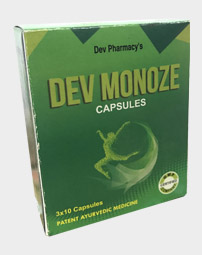Age of menopause
The average age for menopause is 51 years. After the onset of menopause women feel its symptoms for about 10 years and for some women this period can be up to 12 years.
Time of start and end of menopause
Most women have symptoms 4 years before the onset of menopause begin to develop.
There are many factors that help to determine when will menopause start? Perimenopause (In women, when menstruation or period stops for 1 year continuously, it is called Perimenopause.) Perimenopause is a time when your hormones start changing in preparation for menopause. This last for few months to many years. Many women start perimenopause after age 40. Sudden menopause begins when the Perimenopause is complete.
About 1 percent of women experience menopause before 40 years and about 5 percent of women start it at the age of 40 to 45 years. This is called early or premature menopause, or primary ovarian insufficiency.
Cause of menopause
Menopause is a natural process that shows the age of ovaries and less reproductive hormones. In this condition the body undergoes the following types of changes:
- Progesterone
- Testosterone
- Estrogen
- Follicle-Stimulating Hormone
- Luteinizing hormone
One of the most prominent changes is active ovarian loss. Ovarian follicles are structures that increase menstruation and fertility. They produce eggs from the ovary wall and release them.
Most women find their menstrual frequency different for the first time because at this time the flow is very high and long. In some cases, menopause is induced, or caused by injury to the ovary and associated pelvic structures, or removal by surgical procedure.
Common causes of induced menopause include:
- Oophorectomy or surgical removal of the ovaries
- Ovarian ablation or weakening of ovary health which can be done by hormone therapy, surgery or radiotherapy techniques in women with estrogen receptor-positive tumors.
- Pelvic injuries that severely damage or destroy the ovaries.
Symptoms of early menopause
- Having low menstrual periods
- Feeling heavier or lighter than you would normally experience
- Vasomotor symptoms, such as excess heat distress, night sweats, and flushing etc.
- Breast tenderness
- Headache
- Decreased sex drive
- Weight gain
- Oblivion
- Muscle aches
- Urinary tract infections
- Hair loss or thinning
- Increased heartbeat
- Difficulties in concentration
- Fertility issues (in women who are trying to conceive)
- Excessive bleeding
- Unbalance of hormones due to excessive bleeding
Complications of menopause
Common complications of menopause include:
- Vaginal atrophy (thinning of the lining of the vagina)
- Dyspareunia or painful intercourse
- Overactive bladder
- Heart or blood vessel disease
- Reduction in metabolism
- Periodontal disease
- Osteoporosis or Weak Bones
- Cataract
- Sudden emotional changes in mood
Treatment of menopause
If your symptoms are severe and affect your daily life then this requires treatment. Women under the age of 60 and women who have had more than 10 years since menopause started hormone therapy can be an effective treatment for women. In addition, you can reduce or eliminate the symptoms of menopause by following:
- Hot Flashes
- Night sweats
- Flushing
- Vaginal Atrophy
- Osteoporosis
Other drugs can be used to treat more specific menopause symptoms such as hair loss and vaginal dryness such as:
». Use shampoo for weak and shaky hair
». To remove dandruff (ketoconazole 2 percent and zinc pyrithione 1 percent) may be used.
». Use of medicines related to relieve anxiety, depression and hot flash serotonin reuptake inhibitors are mainly involved.
». Using non-hormonal vaginal moisturizers and lubricants.
». Vaginal dryness using low estrogen based creams, rings and pills can be remedied.
». Sleep-related medications can be taken to relieve insomnia.
Factors reducing symptoms of menopause
Maintaining balance in your daily diet is very important after menopause. Eat more and more vegetarian and fiber-rich food and ignore outside or junk food as much as possible. Eat packaged foods as little as you can is very beneficial for your health.
Avoiding the symptoms of menopause
You can talk to your doctor or psychologist about your physical and mental changes such as depression, anxiety, stress, and insomnia. You should talk to your family members, friends or loved ones about anxiety or changes in your mood so that they can help you to overcome your problems.
How to use Dev Monoze Capsules and Syrup
When the menstruation starts to increase, or when there is excessive menstruation take 20 ml of Dev Monoze Syrup 3 times a day and 2 Dev Monoze capsules together. With this, Dev Ashoka Syrup’s 2 teaspoons and Take 2 Dev Ashoka Capsules 3 times a day. Once the bleeding reduced, then take Dev Monoze syrup should be consumed 10ml 3 times a day for a month.
Take both Dev Monoze and Dev Ashoka Syrup 10ml 3 times a day and Dev Monoze capsules and Dev Ashoka capsules both take 3 times a day for at least 3-4 months.

